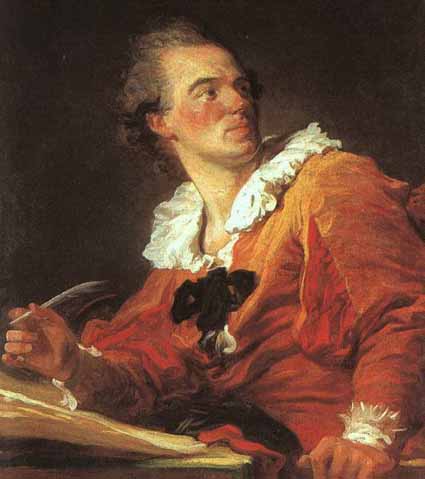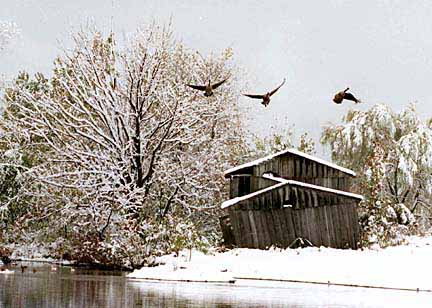ART SHOULD SERVE BEAUTY
"...he made a note reaffirming his belief that art always served beauty, and beauty is delight in form, and form is the key to organizing life, since no living thing can exist without it, so that every work of art, including tragedy, expresses the joy of existence."
"[The artist] speaks to our capacity for delight and wonder, to the sense of mystery surrounding our lives; to our sense of pity, and beauty, and pain; to the latent feeling of fellowship with all creation - and to the subtle but invincible conviction of solidarity in dreams, in joy, in sorrow, in aspirations, in illusions, in hope, in fear... which binds together all humanity - the dead to the living and the living to the unborn."
Joseph Conrad

"...he made a note reaffirming his belief that art always served beauty, and beauty is delight in form, and form is the key to organizing life, since no living thing can exist without it, so that every work of art, including tragedy, expresses the joy of existence. And his own ideas and notes also brought him joy, a tragic joy, a joy full of tears that exhausted him and made his head ache."
from Doctor Zhivago
by Boris Pasternak
In the below passage from "Doctor Zhivago," Yuri Zhivago is drinking vodka and neglecting himself as he desperately mourns the forceful removal of Lara, the love of his life. In a stupor of pain from a broken heart, Zhivago contemplates the meaning of Life and man's place in History in the midst of the Bolshevik Revolution and ensuing civil war.
"At the same time that he was working on his lament for Lara he was also scribbling the end of the notes he had accumulated over the years concerning nature, man, and various other things. As had always happened to him whenever he was writing, a host of ideas about the life of the individual and of society assailed him.He reflected again that he conceived of history, of what is called the course of history, not in the accepted way but by analogy with the vegetable kingdom. In winter, under the snow, the leafless branches of a wood are thin and poor, like the hairs of an old man's wart. But in only a few days in spring the forest is transformed, it reaches the clouds, and you can hide or lose yourself in its leafy maze. This transformation is achieved with a speed greater than is the case of animals, for animals do not grow as fast as plants, and yet we cannot directly observe the movement of growth even of plants. The forest does not change its place, we cannot lie in wait for it and catch it in the act of change. Whenever we look at it, it seems to be motionless. And such also is the immobility to our eyes of the eternally growing, ceaselessly changing history, the life of society moving invisibly in its incessant transformations.
Tolstoy thought of it in just this way, but he did not spell it out so clearly. He denied that history was set in motion by Napoleon or any other ruler or general, but he did not develop his idea to its logical conclusion. No single man makes history. History cannot be seen, just as one cannot see grass growing. Wars and revolutions, kings and Robespierres, are history's organic agents, its yeast. But revolutions are made by fanatical men of action with one-track minds, geniuses in their ability to confine themselves to a limited field. They overturn the old order in a few hours or days, the whole upheaval takes a few weeks or at most years, but the fanatical spirit that inspired the upheavals is worshipped for decades thereafter, for centuries.
Mourning for Lara, he also mourned that distant summer in Meliuzeievo when the revolution had been a god come down to earth from heaven, the god of the summer when everyone had gone crazy in his own right, and not as an illustration of a superior policy.
As he scribbled his odds and ends, he made a note reaffirming his belief that art always serves beauty, and beauty is delight in form, and form is the key to organic life, since no living thing can exist without it, so that every work of art, including tragedy, expresses the joy of existence. And his own ideas and notes also brought him joy, a tragic joy, a joy full of tears that exhausted him and made his head ache."

"Man is born to live, not to prepare for life."

"This was real life, meaningful experience, the actual goal of all quests, this was what art aimed at-homecoming, return to one's family, to oneself, to true existence."